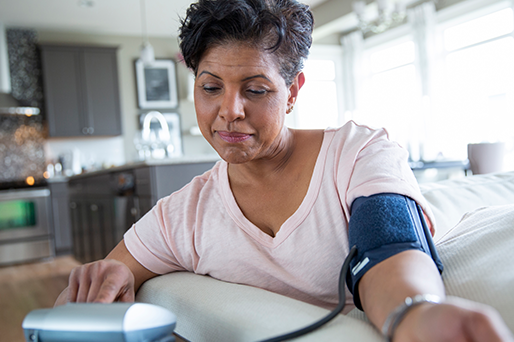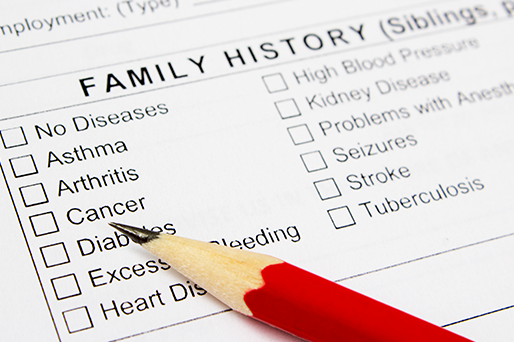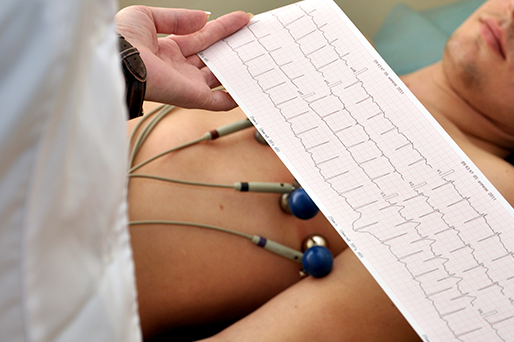9 Steps for a Heart Healthy Lifestyle
February 01, 2024
Each day, your heart beats about 100,000 times. With each beat, your heart takes in blood to replenish it with oxygen and then sends oxygen-rich blood back to your organs.
“Your heart is your body’s pump,” says Daniel Benhayon Lanes, MD, an electrophysiologist (EP) at Memorial Cardiac and Vascular Institute. “It’s a coordinated contraction of heart chambers that’s mediated by electricity. When that coordination is out of rhythm, we call that an arrhythmia. Fast rhythms or slow rhythms can make the pump dysfunctional.”
Some arrhythmias, or irregular heartbeats, result from conditions you’re born with (congenital heart conditions). But how you live your life can help reduce arrhythmia risk and improve heart health.
Keeping Your Heart Healthy for Life
Fortunately, there’s plenty you can do to help prevent or reduce your risk of heart disease now and in the future. Here are nine steps for a heart-healthy lifestyle.
1. Eat heart-healthy foods

Start with your plate to help keep your heart in top shape.
- Make fruits, vegetables, and whole grains the foundation of your diet.
- Choose lean and plant-based proteins like beans and nuts.
- Add fiber to your diet to help control cholesterol.
- Swap high-fat dairy products for lower-fat versions.
- Switch to oils high in unsaturated fats, like canola and olive oil.
Try to limit foods with added salt and sugar. Learn more about the American Heart Association’s recommendations for a healthy Mediterranean-style diet.
2. Drink less alcohol to lower heart disease risk

Consuming too much alcohol raises blood pressure and increases your risk of developing heart disease.
According to the Dietary Guidelines for Americans, adults 21 years and older should limit the amount of alcohol they drink or do it in moderation.
So, what's considered moderate drinking?
- Women: One drink (or fewer) a day.
- Men: Two drinks (or fewer) a day.
3. Keep moving for a healthy heart

Your heart is a muscle, and regular exercise keeps it strong.
The Centers for Disease Control and Prevention (CDC) recommends 150 minutes of moderate-intensity physical activity each week. The good news? You can break that up into chunks of time that work for your schedule.
Do what you can each day to sit less and move more.
4. Watch your numbers to keep your heart healthy

High blood pressure and high cholesterol increase your heart disease risk. Talk to your healthcare provider about managing these conditions with medication and lifestyle changes. Other numbers that affect your heart disease risk include:
- Your age: When you turn 45 (for males) or 55 (for females), your heart disease risk increases. Talk to your healthcare provider about actions you can take to protect your heart.
- Your weight: Carrying extra weight makes your heart work harder. It also increases your risk of coronary artery disease. Do what you can to reach and maintain a weight that’s healthy for you.
5. Know your family history of heart disease

Ask if there’s a history of heart disease in your family. If you have a relative who had early heart disease (before 55 for males and 65 for females), tell your healthcare provider. Find out if a family member had:
6. Quit smoking — your heart will thank you

When you smoke or vape, inhaled chemicals damage your heart and blood vessels. Smoking increases your risk of:
- Cardiovascular disease
- Coronary artery disease
- Heart attack
- Lung cancer
- Stroke
If you smoke, try to quit. Even if you already have heart disease, quitting can improve your heart’s health.
7. Manage stress to protect your heart

We all feel stress. But when we have trouble managing it, we’re more likely to:
- Engage in behaviors like smoking or drinking too much alcohol
- Make poor food choices or skip exercise
- Not get enough sleep
Stress also affects your heart rate and rhythm. Try a calming activity to help you cope, such as:
- Meditation or yoga
- Spending time with a friend or family member
- Walking
- Watching a funny movie
- Working on a relaxing hobby
8. Keep an eye on your heart rhythm

Wearable devices monitor fitness stats and heart rate (how fast your heart beats). Some also give you important information about your heart rhythm. These devices may benefit you if you have:
- Cardiovascular disease
- Family history of arrhythmia
- Occasional episodes of fluttery heartbeats (palpitations)
If your device shows irregularities in your heartbeat, talk to your healthcare provider. They may want you to see an electrophysiologist who can test you for an arrhythmia.
9. Get quality sleep to benefit your heart

Skimping on sleep raises your blood pressure and increases heart attack risk. Have trouble falling asleep or wake frequently during the night? Try to:
- Avoid caffeine and alcohol in the evening
- Go to bed and get up at the same time each day
- Set electronic devices aside in the evening so you can unwind
Many wearable devices can tell you how you’re sleeping. Talk to your healthcare provider if you notice breathing irregularities during sleep. Sleep apnea can increase your arrhythmia risk.
Schedule an Appointment for Heart and Vascular Services
Learn more about heart and vascular services at Memorial Cardiac and Vascular Institute. To schedule an appointment with a cardiologist, electrophysiologist, or vascular specialist at Memorial, call 855-400-6284.

